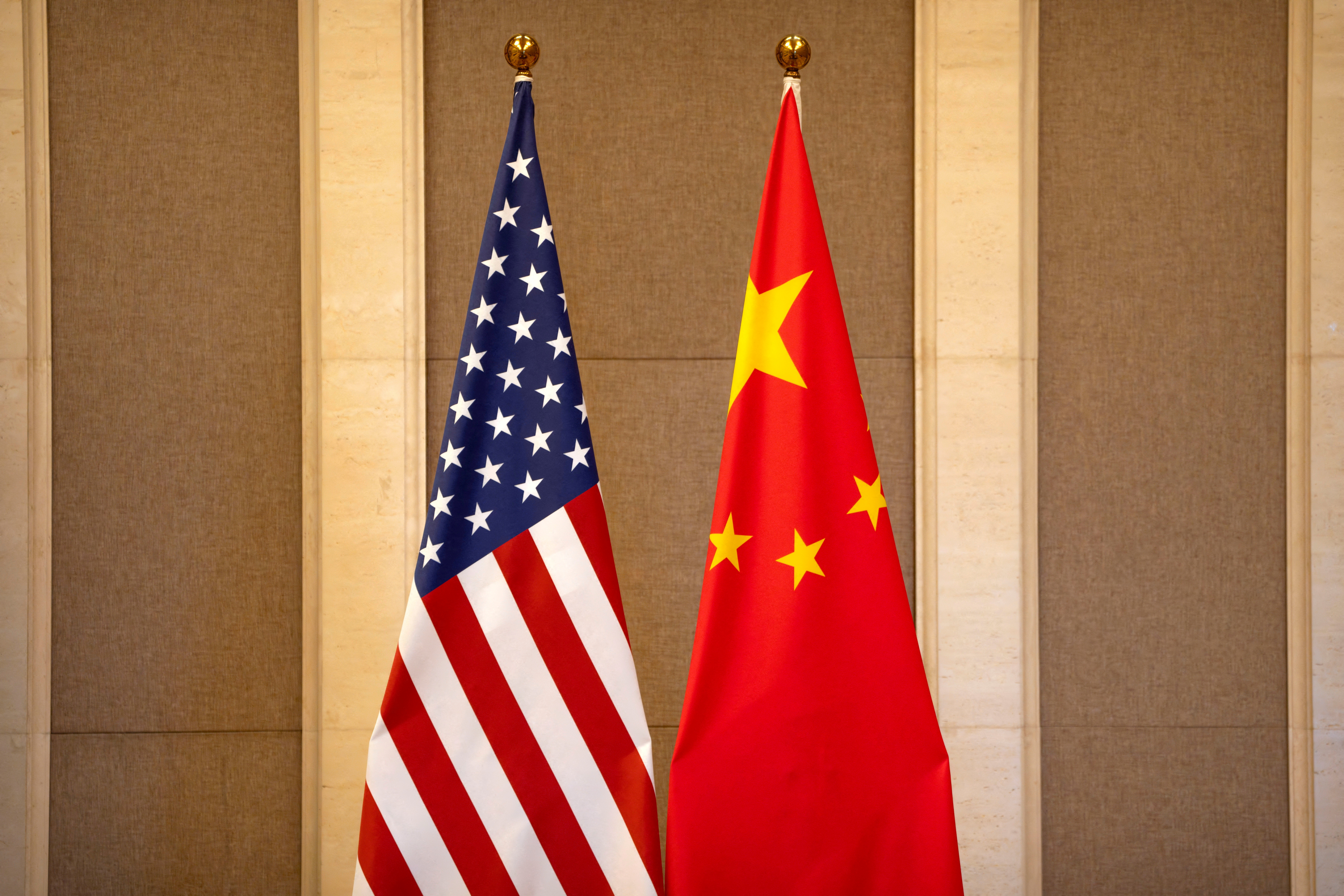[ad_1]

U.S. and Chinese flags are set up before a meeting between U.S. Treasury Secretary Janet Yellen and Chinese Vice Premier He Lifeng in Beijing, China, Saturday, July 8, 2023. Mark Schiefelbein/Pool via REUTERS/File Photo Acquire Licensing Rights
SINGAPORE, Nov 14 (Reuters Breakingviews) – A successful shareholder agitation and bidding war over a Chinese company listed in the United States could embolden minority owners of other undervalued firms from the People’s Republic to push for more value, too.
It was widely assumed take-private deals for U.S.-listed Chinese firms would happen at knockdown prices and face little shareholder opposition because of seemingly insurmountable geopolitical tensions between Washington and Beijing.
The saga at Hollysys suggests otherwise. Acquisition interest in the industrial solutions company surfaced three years ago but the $1.4 billion Nasdaq-traded firm only launched a formal sale process last month after submitting to pressure from investors, including activist Hong Kong-based Oasis Management, and from bidders.
It is unusual to see a ruckus over a U.S.-listed Chinese firm. The drama stands out even more at a time global M&A volumes are languishing. Would-be acquirors of Hollysys include the company’s own management, a buyout firm and a consortium including Chinese state-owned investors. In a pincer move, China-focused Ascendent Capital Partners last week proposed a non-binding offer valuing Hollysys’ equity at $1.6 billion and revealed that it had built up a 14% stake in the company after a dawn raid on its shares. Its proposal was quickly topped by a consortium offer led by Singapore-incorporated investor Recco and Hong Kong’s Dazheng valuing Hollysys at $1.64 billion or $26.5 per share.
There’s much to like about the Beijing-based target. It has a stable automation business which caters to over 23,000 customers including government-controlled ones. The segment constitutes 65% of Hollysys’ top line, which has risen by over 50% from three years ago. The company also has roughly $600 million of net cash on its balance sheet.
It is undervalued too. David Blennerhassett of Quiddity Advisors, who publishes on Smartkarma, notes that Hollysys is trading at a multiple of 12 times forecast earnings for June 2024. This compares with the mean of 17 times for a handful of its Chinese peers and global rivals including ABB (ABBN.S) and Emerson Electric (EMR.N). Bigger Chinese competitor Supcon (688777.SS) trades at a multiple of 31, per LSEG data.
Shareholders remain sceptical: Hollysys’ shares trade at a near 20% discount to the higher bid. After rejecting multiple approaches over the years, the management needs to rebuild trust. The company’s CEO is also sparring in court with his predecessor. Investors are urging Hollysys to hold a special meeting to appoint more independent directors.
Nonetheless, if a deal goes through, other fights could follow. For example, buyout firms were circling data centre VNET Group (VNET.O) last year. The Hollysys affair suggests shareholders can expect a little bit more as Chinese companies bid farewell to the United States.
Follow @anshumandaga on X
CONTEXT NEWS
China-focused buyout firm Ascendent Capital Partners on Nov. 6 revealed it had acquired a 13.7% stake in Nasdaq-listed Hollysys Automation Technologies and proposed a non-binding offer to take the Beijing-based company private in a deal valuing its equity at $1.6 billion. The $26 per share cash offer represents a 26% premium to the closing price on Nov. 3.
On Nov. 8, a buyout consortium led by Singapore-incorporated investor Recco Control Technology and Hong Kong’s Dazheng Group Investment submitted a higher offer of $26.5 per share. Shares of Hollysys closed at $22.2 on Nov. 10. The company also received a management-led takeover offer at $25 a share in October.
Hollysys said on Oct. 30 that it is in talks with multiple prospective buyers and a preferred bidder is set to be identified as early as December.
(This story has been corrected to say the CEO is sparring in court, not the company in paragraph 7)
Editing by Una Galani and Thomas Shum
Our Standards: The Thomson Reuters Trust Principles.
Opinions expressed are those of the author. They do not reflect the views of Reuters News, which, under the Trust Principles, is committed to integrity, independence, and freedom from bias.
[ad_2]
Source link
